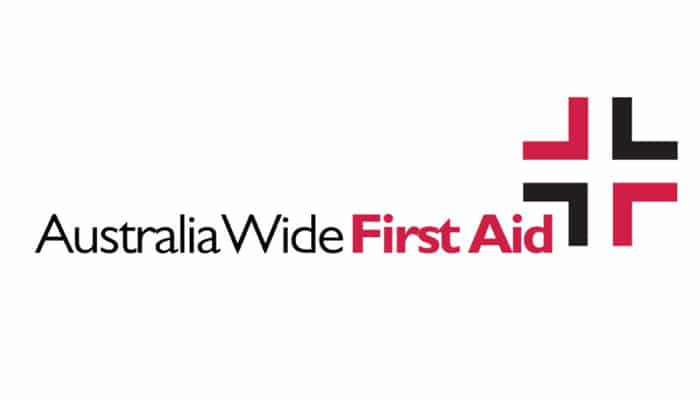As a nanny, you may find it hard to have difficult conversations with your employer. However, these conversations become necessary at some stage in your role as a nanny. When avoiding the need to communicate and have difficult conversations, only makes issues grow and become harder to address. That is why a few communication tips for nannies could help you navigate these challenges effectively.
Whether the conversation is about the children under your care, co-workers or even the family, it is crucial to address all issues to maintain a healthy and productive relationship with your employer.
Understanding Your Role and Duties as a Nanny
Understanding your role and duties as a nanny makes it much easier to communicate effectively with your employer. Because your primary duty is to provide care for the children, their safety and well-being must come first at all times.
Nannies have the responsibility to care for children and provide the resources for their basic and educational needs. Similarly to childcare, they must maintain and organise a clean and healthy environment for the children.
Additionally, families expect nannies to provide transportation to and from school and other activities. You must also engage in all activities related to the children.
Taking these basic roles into consideration, it becomes more evident how vital open and honest communication is. Furthermore, clear communication regarding your availability, vacation times, salary, and other commitments affecting your work schedule is crucial.
There may also be times when difficult situations arise regarding the children, in which case you must be able to have these challenging conversations with the parents.
Having difficult conversations with your employer as a nanny is inevitable. However, these conversations and open levels of communication will only help to establish a more mutually beneficial working relationship with your employer.
What Makes A Good Nanny
As a nanny, you may often wonder whether your employer regards you as doing a good job. In this case, communicating your concerns may help.
However, there are a few other forms and aspects that most parents regard as qualities of a good nanny:
- A good nanny will go beyond just fulfilling their basic responsibilities.
- They do their best to build strong connections with the children and parents.
- Good nannies are reliable, and trustworthy and constantly try to improve their skills and knowledge in the field.
- One vital aspect of a good nanny is being responsive and attentive to the children’s and families’s needs.
- Active listening, providing emotional support, and consistently addressing concerns are vital qualities in a good nanny.
- Similarly, nannies provide a nurturing and supportive environment for children to thrive and grow.
- Communication such as regular updates on children’s activities, accomplishments and challenges are essential qualities. Open feedback helps to strengthen your bond with the parents and children.
- Similarly, good nannies offer some flexibility and adaptability. For example, children’s and parents’ schedules may change and being able to effectively adjust your schedule to meet their needs shows that you are committed to your role as a nanny.
These are all good qualities for a nanny to have, in addition to the regular duties and responsibilities. It is what makes one nanny’s experience shine out from the rest. Similarly, as you can see in all these qualities, effective communication is a key cornerstone for better understanding.
Why is Good Communication Crucial Between a Nanny and an Employer?
Communication between the nanny and the employer is very important for keeping up a good working relationship. This would enable both parties to communicate their expectations, concerns, and feedback efficiently and hence be able to understand each other better.
This implies that good communication with the nanny is important to the employer, who will have peace of mind knowing that their children are receiving the best care and that the nanny abides by all their instructions. It also aids in updating or changing schedules/ routines for the children.
On the other hand, good communication from the employer gives the nanny clarity and direction. It informs them about what the employer wants and prefers and any special instructions that are to be followed when caring for the children. It also gives them an avenue through which they can express any problems or issues that they are experiencing and thus get support and guidance from the employer.
Ultimately, effective communication brings trust and mutual respect between the nanny and the employer, and that forms the basis for a successful and harmonious working relationship.
Mastering How to Communicate Effectively
Mastering nanny-employer communication involves a combination of active listening, clear and concise expression, and effective use of feedback. By implementing these strategies, you can enhance your communication skills and build a stronger professional bond and connection with your employer.

A few important aspects of good communication include:
Active Listening
Active listening is the secret of any kind of effective communication. It means fully focusing attention on what your employer has to say, taking time to comprehend their needs, positive feelings and concerns, and reacting to them. Through active listening, you will avoid misunderstandings and conflict; at the same time, you will ensure more control and that you meet the expectations of the employer.
Clear Expression
Another important factor in communication between nannies and employers is clear and concise expression. It is the clear and simple enunciation of ideas and thoughts in language that both parties easily understand. One should avoid using too many technical words or too heavy words that put off the employer; good communication needs to convey the verbal message itself to be as simple and clear as possible.
Consistent Feedback
Feedback should only help in solidifying the professional relationship that exists between a nanny and the employer. In other words, both parties have room for giving and receiving feedback, which is the only way constant development and learning will occur. When giving feedback, always be specific, constructive, and respectful. On the other hand, if you are receiving it, then show an open mind and be receptive to suggestions for improvement.
Mastering these communication techniques will help you create an effective and positive communication dynamic with your employer, paving the way to a more successful and fulfilling nanny-employer relationship.
Effective Communication Techniques for Routine Updates
Updates in the form of a routine report to the employer regarding what the kids are doing are part of nanny-employer communication.
Consider the following tips and techniques to ensure good and effective communication:
- Daily Written or Verbal Updates – A daily report or update to the employer on what the children have done for the day, which includes activities, meals, and naps, as well as any upcoming or outstanding events in their life; this provides the employer with total information and involvement in their children’s lives.
- Using Technology – You can share pictures, messages, and videos with the employer through a communication application or platform. This system would update the employer in real time and give them a stronger feeling of connection with their children.
- Weekly Check-Ins – Keep an uninterrupted time slot every week to communicate any urgent updates or concerns with the employer. This will help keep both parties on track and guarantee open communication.
Such effective communication techniques will help you establish a regular update pattern with the employer, enhance transparency, and thus help in keeping up a good work relationship.
Two Effective Communication Techniques for regular updates are feedback and utilising technology.
The Role of Feedback in Strengthening Professional Bonds
Feedback is integral to establishing a professional relationship between a nanny and an employer. Feedback enables growth, improvement, and mutual understanding between the two parties.
Some of the key considerations about feedback include:
- Follow-Ups – Have regular meetings with your employer regarding your performance, issues, and feedback. This can facilitate openness in communication and avoid misunderstanding of expectations by either party.
- Be Specific – If you are to give feedback, specify what has gone well and what hasn’t. With suggestions and solutions from your employer, it allows you as the nanny to learn and improve the situation.
- Be Open – While aware the employer is giving you feedback, try not to be defensive but receptive to learn from such an instance. Clarify all the questions arising in your head and ask for more guidance if deemed necessary.
- Appreciate Feedback – Be appreciative of the employer’s feedback; it is a proof of how much they really do care about your professional development. Thank them for sharing their ideas, and reassure them that you appreciate the feedback they are giving.
In having respect for the value of feedback and demonstrating initiative in the process of feedback, you will build for yourself a closer professional relationship with your employer and be a nanny who continuously improves.
Utilising Technology to Enhance Communication Efficiency
Technology can greatly enhance the effectiveness of communication between a nanny and an employer in today’s digital age.
Here are a few ways to make good use of technology for improved communication:
- Communication Apps – Use communication apps specifically aimed at providing nanny-to-employer communication. Most of these apps facilitate real-time messaging, photo sharing, and scheduling updates, thus keeping both parties connected at all times.
- Shared Calendars – Keep a record of the children’s daily schedule, doctor appointments, and other various activities on shared online calendars. That way, both the nanny and the employer will be able to stay informed about all activities and avoid a case of double booking.
- Video Calls – It would be best to schedule regular video calls with the employer, wherein you can discuss important matters, updates, or concerns about the children. Video calls add a touch of personal and interactive communication, therefore bridging the distance between the nanny and the employer.
- Sharing Files – Share key documents, such as emergency contacts, medical information, and consent forms, on cloud storage sites so that both the nanny and the employer are equipped with what they need when they need it.
Integrate technology into your communications with your employer by facilitating information exchange, smoothing workflows, and generally building up a stronger nanny-to-employer relationship.
Tips for Engaging in a Difficult Conversation
Setting up a difficult conversation involves collecting all the pertinent facts and information. Be sure to understand clearly the situation, the facts of the matter, the details, or the supporting evidence.
Accurate information will not only help in presenting your points effectively but also in the clarification of any posed form of doubt. This shows your level of professionalism and dedication in trying to sort out the relevant issue.

Get all Your Facts Straight
Keep in mind that conflict is natural with human interaction and relationships. Your goal is not to hurt or find blame but to solve a problem and reach the best outcome possible for all parties concerned. Having confidence in this purpose will help you through the conversation.
Difficult conversations call for empathy, preparation, and courage. The more you practice, the better you will be at them. Remember, addressing issues directly and with kindness is the key to maintaining healthy relationships in your role as a nanny.
It’s also important to remember that many families are not experienced employers and as such may not be aware of the issues or challenges you are facing as a nanny.
Prepare a Rough Script and Plan for Potential Questions
It can be useful to draft a script of a difficult conversation or its outline to ensure that all your key points come across clearly and confidently.
Consider what you’ll say, and also what the other person might want to say, ask, or be concerned about. By thinking through possible outcomes of your interaction and being more prepared for them, you can begin a conversation with much more confidence.
Establish Your Objective for the Conversation
Before you enter into a difficult conversation, define what the objective of the conversation might be and may prove to be tough to discuss. You should try to determine what it is that you would like to achieve or resolve from the conversation.
A well-defined objective enables one to maintain the same level of focus and keep the conversation on track. It also helps in evaluating how successful the conversation has been, considering if you achieved your desired outcome.
How To Start the Conversation
Starting a difficult conversation can be hard, so always begin with clarity and respect. Express the objective for which the open and honest conversation is taking place.
You could say, “I would like to bring up a concern about something important in our working relationship. I respect your point of view, and I hope we can resolve it together.” Thus, you have set a positive tone for the conversation right at the start.
Acknowledge But Control Your Emotions
Having difficult conversations as a nanny means one needs to acknowledge their feelings, but at the same time, keep them in check. Difficult conversations may tend to be emotionally draining. Calmness and composure help at this point. Take a second to breathe and think through before you begin the conversation. Keeping control of your emotions will keep the conversation productive and respectful.
One useful approach is to show that you feel a certain emotion but maintain some control over it. You can say something like, “I am frustrated about the situation, but I would like to have a constructive discussion to reach a solution”.
Give the Other Party Time to Process
It is good practice, especially during difficult conversations, to give the other person time to process the information you are providing and their feedback. Sometimes, individuals need a moment to process the information and formulate their response before answering.
After you have aired your own thoughts or made your point, listen to the other person’s response. Do not interrupt. Let them have their say while actively engaged; listening to them will help this be a more open conversation.
Respect The Other Person’s Feelings
The difficulty with conversations lies in showing respect for the other person’s feelings. Even when one has a valid point, it is important to validate their feelings and show empathy in return.
Hear them out first and validate their feelings. You can say, for example, “I appreciate this has been a difficult situation for you, and I do want to find a solution that works for both of us.” Showing respect and giving empathy lightens the load of the conversation.
Avoid Assigning Blame
Blaming the other person in a hard conversation could raise tempers, completely ruining any chance of effective communication. Instead, look at the issue and work toward a solution together.
You always want to set a tone of cooperation and constructive discussion.
Stay Confident
Keeping the level of confidence high will help you have challenging conversations as a nanny. Being confident will make it easier for you to express yourself, convey your voice with credibility, and be more assertive.
Trust your opinion and the value of your conversation. Be confident in your choice of words, and show positive body language, carriage, and eye contact. Stay confident, and be able to steer the conversation if necessary, clearly and with a sense of purpose.
Restate Your Expected Outcome But Honour Your Employer’s Decision
In difficult conversations, the nanny should communicate what kind of result they are expecting while, of course, giving respect to the employer’s judgment.
State the desired outcome or resolution that you would like to realise, giving the reasons for it. However, be ready to accept the decision of the employer if it is different from what the expectation was. Do not be unprofessional and uncooperative if the outcome is not favourable. This helps in maintaining a good working relationship.
Five Helpful Techniques for Difficult Communication
These tried and tested techniques have proven themselves more than helpful concerning difficult conversations. As a nanny, you could easily implement them in your communication methods.
- Always start your conversation first by acknowledging your responsibility as a nanny.
- Define the outcome or goals you wish to achieve with the conversation.
- Point out all the positives before addressing the negatives.
- Listen and validate the other person’s feelings before answering.
- Try to restate the outcome that you wish to achieve.
A bonus tip is to rehearse the conversation first so that you feel comfortable with the speaker’s intention of hearing what you are going to say.
As a final note, good communication between nannies and their employers is crucial to building strong and healthy relationships. You cannot avoid challenging conversations throughout your nanny career. Eventually, at some stage, there will be some conflict that you’ll need to address. In this case, it is also good to prepare yourself properly and know how to communicate effectively about these issues with your employer.










